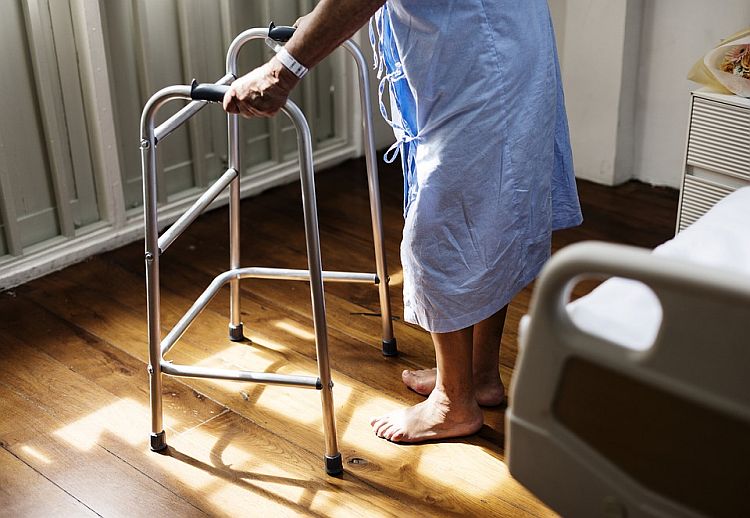
How To Care For The Elderly At Home
- March 28, 2018
- by
- Khyra
Eldercare – 11 Tips to help make it easier
The senior citizen of today was once a vibrant and active member of the workforce going about their lives with the minimalist fuss. Thus as age comes on, many of the different aspects of their once active lifestyle slow down or has to be done away with altogether. Taking care of our elderly loved ones is difficult and if not expensive. But hey it’s a labour of love and with planning and some commitment, you’ll easily get the job done. Here are some practical tips and advice to make the job easier:
Plan Ahead
Like every other aspect of life, taking care of your senior citizen requires planning in order to help contain the different t aspects of their lives and any emergencies. The plan will have different aspects but will generally put the preference of the senior citizen first.
Home Caregiver
Home caregivers are a wonderful option for an elderly patient who chooses to continue living in his/her own home. The caregiver must be carefully chosen, considering his/ her disposition, religion, language, capabilities, education, health and marital status.
The caregiver must have his/her responsibilities clearly spelt out and in agreement with the elderly person. Their responsibilities may include cooking, laundry, giving medication, helping the senior citizen get around, arranging for entertainment/ hobbies.
Caregivers need to ensure that the senior citizen should be allowed independence as much as is safely possible in order to maintain their sense of accomplishment, preserve and encourage function. Sourcing for caregivers may entail person to person enquiries, searching the web or checking at your local council, club or church.
Health Considerations
Seniors require medication, doctor and nursing care to remain healthy. As the years go by Medications, therapies and doctor visits then become a way of life. To make it easier for them, where possible consider, having a nurse, doctor or therapists visit them at regular intervals at home. Arrange with a nearby hospital or clinic where the patient will be quickly taken to in case of life-threatening emergencies.
Keep a contact diary of doctors, nurses, lab scientist, therapists, pharmacies and pharmacists involved in the senior’s medical care and have it clearly typed out and kept where it will be most visible at all times.
Mental health is important. Have the caregiver or relatives watch out for signs of forgetfulness, lack of interest, anger or unsteadiness and report such observations to the doctor. Talk with the Doctor and pharmacists in charge of your elderly patient about your concerns over the medication he/she is taking. Discuss possible effects of drug interactions.
Establish a routine of medical checks (of course in consonance with the doctor). If eyeglasses are required, do get one as this will enhance their enjoyment of their daily activities and recreation
Mobility Considerations
With age comes different mobility challenges. Seniors find it particularly disconcerting that they’ ll be needing assistance to move around. Get the patient fitted with a wheelchair (motorised or basic) if the need arises.
Install grab bars in the bathrooms, bedrooms and where the senior is most likely to walk by. Ensure that the caregiver and the senior understands the basic operations of the wheelchair and the need for the grab bars. It is recommended that elderly people change positions frequently whether lying down or seated as this will help with blood flow and ease stress on the skin.
For seniors who drive, stopping driving may engender resentment and feelings of helplessness. You can engage a chauffeur or arrange for a public taxi to pick them up and drop them wherever and whenever the need arises. Ensure that the vehicle in use is regularly serviced, is in good condition and the driver’s ability is certified
Safety Considerations
Feeling safe at all times is important. Most seniors get agitated when situations around them point to an absence of safety. To encourage them, patiently explain your at- home safety routines allowing them to make contributions.
As much as possible, keep the floor dry at all times. Install skid resistant tiles or use heavy dry towels on bathroom floors to stave off wetness. Also, use mat in the baths and install shower curtains to contain water splashes on the floor while showering.
Instruct older children or caregivers or whosoever is living with your loved one on the essential safety gadgets in use especially fire extinguishers and alarms, bells, phones, medical equipment etc. Have them use these items in your presence.
Conduct an emergency evacuation drill at home citing different emergency situations getting everyone to participate. Teach basic first aid procedures.
Keep up with technology that will provide essential monitoring services like CCTV Camera, Quietcare and a GPS enabled-phone, smoke detectors with vibrate features. Check the lighting in and around the house to ensure its adequate. Get a certified electrician to install a night light in the senior’s rooms.
Hygiene and Personal Care Considerations
Old people need top quality personal care and hygiene attention. At least to avoid the so-called old people smell! Regular full baths, change of clothes and underwear, beddings and use of hygiene products are a must.
For seniors who have incontinence issues, use a mackintosh to cover the bed. Keep handy a solution of bleach and vinegar in a spray bottle and use on the floor or the bed after changing the sheets to do away with odours. Ensure beddings are washed at least once a week. Wash bathrooms and toilets with bleach and detergent solution to freshen them. Change bathing towels at least once a week.
Give the senior a regular shave of the intimate areas as this will help with sweating and odours. If there is a case of malodour even after brushing, consider incorporating tongue brushing and use of mouthwash after every meal. To combat body odour, regular use of deodorants is important. Teach the patient to wipe underarms, neck, under the breast and if possible the groin on their own (or assisted) at a set time in the afternoon with a scented baby wipe and then re- apply the deodorant. Shave or style their hair as the senior desires and keep beards well groomed.
Exercise
Exercise for seniors is a challenge as most of them will resist due to fear of falls. But not to despair as there are many forms of gentle exercises your senior patient can do while at home. A regular exercise routine is an important protection against chronic diseases, reducing chances of falls, tones muscles and boosts mood.
Exercises for seniors should be types that makes little or no use of equipment. Stuff such as leg raising, stretches, use of lightweight dumbbells, walking, chair exercises, PASSIVE RANGE OF MOTIONS (POM) or swimming should be okay. As in all cases check in with the doctor before commencing any exercise regimen. Remember you can encourage your loved one to exercise if you participate or where practical get the children to join while you supervise
Finances
The finances of your loved one should be looked into as the business world is continually evolving and the basic tenets of financial services change. Issues with retirement benefits, pension plans, financial and physical investments should be thoroughly checked.
Consider having them live with you to offset housing bills, power and security charges. If they choose to live on their own, endeavour to install proper electricity metering device and explain how it works. Check out their trash removal services, in-house assistants, hairstylist/barber, laundryman and get to know these people their families and residence. As much as possible see to it that you get their pictures, verified domestic addresses and guarantors as this will be of help in case of emergencies.
Elderly people are much vulnerable to scams, patiently explain the workings of some of these scams and what can be done to avoid them. Where possible obtain written guarantor statements from relatives of in-house assistants. This will serve to deter them from taking advantage of your loved one.
Nutrition
Healthy eating is essential for the continued good health of the senior citizen. Each meal should have good quality proteins, fruits, vegetables and low-carb carbohydrates and high-quality oils. It should be noted that nutrition requirements vary with age and health conditions. Ageing people due to ill health may reject certain foods while repeatedly consuming another due to sensory depreciations, drug interactions, ease of food preparation and availability and metabolism.
Bloating, excess production of gas and hyperacidity are all too common. You may need to study the food preferences of the patient to find out the foods causing discomfort and eliminate them. But you also have to find other foods to replace them with or make some changes in your food preparation style and serving times.
Make meal times for the elderly a time for connection by ensuring other members of the family eat with him or her at least once a day. This will enhance family bonding, boost their mood and give the elderly something to look forward to every day.
Recreation
Fun activities for seniors can easily be incorporated into their daily routines with a little tweaking of the day to day activities. Visits to friends, other family members, church activities and playing suitable games with family members can be arranged. Card games, Ludo, chess etc. are all welcome. Let the senior select his/her preference and set out time for play. You can keep a record of scores if desired.
Get the mobile senior to volunteer and /or to actively participate in church activities, town meetings. Take your loved one (especially the non-ambulatory) on a drive through the city/ town where you live and show off the sights and sounds of the place. Select a particular programme on the local television that the family can watch together. These activities will give the senior things to talk about thereby staving off dementia.
Time Off
Taking time off the duties of caregiving is essential to maintain the good health and mental wellbeing of the caregiver. Working with family members, the primary caregiver must get some time off to rest and refresh.
Where possible engage two caregivers and work out a duty schedule for them such that when one person is off duty the other is available to work. This though expensive is a win-win situation for everyone involved in the life of the senior
CREDITS







